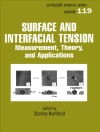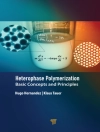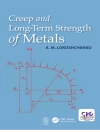With its focus on drugs so recently introduced that they have yet to be found in any other textbooks or general references, the information and insight found here makes this a genuinely unique handbook and reference.
Following the successful approach of the previous volumes in the series, inventors and primary developers of successful drugs from both industry and academia tell the story of the drug’s discovery and describe the sometimes twisted route from the first drug candidate molecule to the final marketed drug. The 11 case studies selected describe recent drugs ranging across many therapeutic fields and provide a representative cross-section of present-day drug developments. Backed by plenty of data and chemical information, the insight and experience of today’s top drug creators makes this one of the most useful training manuals that a junior medicinal chemist may hope to find.
The International Union of Pure and Applied Chemistry has endorsed and sponsored this project because of its high educational merit.
Table des matières
PART I: GENERAL ASPECTS
New Trends in Drug Discovery
Patenting Small and Large Pharmaceutical Molecules
PART II: DRUG CLASSES
Kinase Inhibitor Drugs
Evolution of Nonsteroidal Androgen Receptor Antagonists
PART III: CASE HISTORIES
Development of T-Cell-Engaging Bispecific Antibody Blinatumomab (Blincyto) for Treatment of B-Cell Malignancies
Ceritinib: A Potent ALK Inhibitor for the Treatment of Crizotinib-Resistant Non-Small Cell Lung Cancer Tumors
Discovery, Development, and Mechanisms of Action of the Human CD38 Antibody Daratumumab
The Discovery of Obeticholic Acid (Ocaliva), First in Class FXR Agonist
Discovery and Development of Obinutuzumab (Gazyva, Gazyvaro), a Glycoengineered Type II Anti-CD20 Antibody for the Treatment of Non-Hodgkin Lymphoma and Chronic Lymphotic Leukemia
Omarigliptin (Marizev, MK-3102)
Opicapone, a Novel Catechol-O-Methyltransferase Inhibitor (COMT) to Manage the Symptoms of Parkinson’s Disease
The Discovery of Osimertinib (Tagrisso): An Irreversible Inhibitor of Activating and 1790M Resistant Forms of the Epidermal Growth Factor Receptor Tyrosine Kinase for the Treatment of Non-Small Cell Lung Cancer
Discovery of Pitolisant, the First Marketed Histamine H3-Receptor Inverse Agonist/Antagonist for Treating Narcolepsy
Discovery and Development of Safinamide, a New Drug for the Treatment of Parkinson’s Disease
Discovery and Development of Trifluridine/Tipiracil (Lonsurf)
A propos de l’auteur
Janos Fischer is a Senior Research Scientist at Richter Plc., Budapest, Hungary. He received his MSc and Ph D degrees in organic chemistry from the Eotvos University of Budapest under Professor A. Kucsman. Between 1976 and 1978, he was a Humboldt Fellow at the University of Bonn under Professor W. Steglich. He has worked at Richter Plc. since 1981 where he participated in the research and development of leading cardiovascular drugs in Hungary. His main interest is analogue based drug discovery. He is the author of some 100 patents and scientific publications. Since 2014 he is Chair of the Subcommittee on Drug Discovery and Development of IUPAC. He received an honorary professorship at the Technical University of Budapest.
Christian Klein is Head of Oncology Programs at the Roche Innovation Center Zurich, specialized in the discovery, validation and preclinical development of antibody based cancer immunotherapies and bispecific antibodies. During his 15 years at Roche he has made major contributions as research project leader to the development and FDA/EMA approval of obinutuzumab, the preclinical development of four bispecific antibodies currently in active clinical development, as well as the development of Roche’s novel proprietary bispecific antibody platforms e.g. the Cross MAb technology.
Wayne Childers is Associate Professor of Pharmaceutical Sciences at Temple University, Philadelphia, USA. Wayne received his BA (1979) degree from Vanderbilt University in chemistry and Ph D (1984) in organic chemistry from the University of Georgia under the direction of Harold Pinnick. He served as an assistant adjunct professor at Bucknell University before accepting a position as a postdoctoral fellow at the Johns Hopkins University School of Medicine in the laboratories of Dr. Cecil Robinson. He then joined Wyeth, working in numerous therapeutic areas, including psychiatric diseases, stroke, and Alzheimer’s disease, and the treatment of chronic pain. He stayed with Wyeth for 22 years, before joining the faculty of Temple University in 2010.












